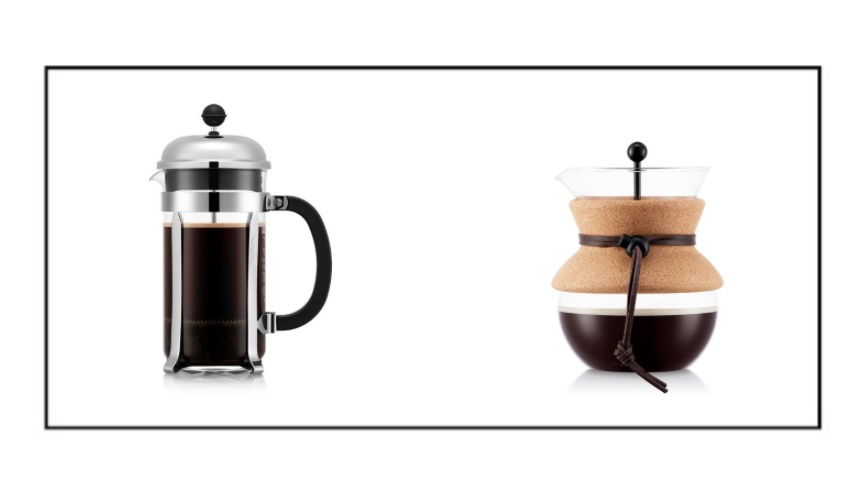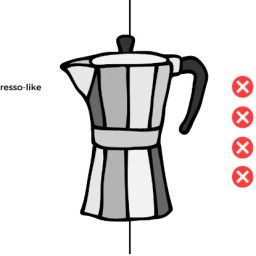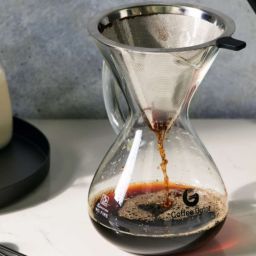
Coffee enthusiasts often debate the merits of different brewing methods, particularly when comparing pour over and French press. Each method offers a unique approach to coffee making, influencing the taste, texture, and overall experience of your morning cup. So, is pour over coffee better than French press? The answer isn’t straightforward and largely depends on personal preferences, lifestyle, and what you’re seeking in your coffee experience.
Key Takeaways
- Pour Over Coffee: Known for its cleaner and more subtle flavor, pour over coffee appeals to those who enjoy a nuanced cup. It’s also favored for its ease of cleaning, making it a convenient choice for daily brewing.
- French Press Coffee: If you prefer your coffee strong, rich, and bold, the French press might be your go-to. While it offers a robust flavor, be prepared for a bit more effort in the cleaning department compared to pour over.
- A Matter of Choice: Ultimately, whether pour over or French press is better boils down to your personal taste, how much coffee you typically brew, and the level of convenience you desire in your brewing process.
Brewing Method and Equipment: Pour Over Coffee
Pour over coffee requires a dripper, a filter, a kettle, and, of course, your coffee grounds. The process begins by heating water to just below boiling, then gradually pouring it over the coffee grounds placed in the filter. This method allows water to flow through the coffee, extracting flavors directly into your cup or carafe below. The key here is control and precision, allowing you to adjust the taste by changing the pouring speed and pattern.
French Press Coffee
The French press involves a more straightforward approach. You’ll need the French press itself, coarsely ground coffee, and hot water. Add the coffee grounds to the press, pour hot water over them, stir, and then let it steep for about four minutes. After steeping, you press down the plunger, which separates the grounds from the extracted coffee. This method is known for its simplicity and the rich, full-bodied coffee it produces.
Taste and Flavor Profile
Pour Over Coffee: Pour over coffee is celebrated for its clarity and the ability to highlight subtle flavor notes, making it a favorite for tasting single-origin beans. The coffee tends to be lighter and cleaner, often with a more pronounced acidity. It’s the method of choice for those who appreciate the intricate flavors that coffee can offer.
French Press Coffee: On the other hand, French press coffee is known for its robust and rich profile. The brewing process allows oils and fine particles to remain in the cup, contributing to a thicker, more textured coffee. It’s less about highlighting specific notes and more about delivering a strong, bold coffee experience. If you prefer a hearty cup that’s full of body, the French press might just be your ideal brewing method.
Ease of Use and Cleaning
Pour Over Coffee: Pour over coffee boasts a straightforward cleaning process, primarily due to the use of paper filters that capture most of the grounds, allowing for easy disposal. Once your brewing is complete, just remove the filter, toss it away, and rinse the dripper. It’s a swift process that keeps the hassle to a minimum, perfect for those who value convenience.
French Press Coffee: The French press, while not overly complicated, demands a bit more effort when cleaning. After brewing, you’ll need to dispose of the coffee grounds, which can be a bit messy. The plunger and filter require a thorough rinse to remove residual coffee particles. It’s a bit more hands-on compared to the pour over method but still manageable.
Brewing Time and Capacity
Pour Over Coffee: Pour over is ideal for brewing single servings or small quantities, making it a great choice for individual use or when serving a few people. The brewing process is relatively quick, though it requires attention during the pour to ensure even extraction.
French Press Coffee: The French press is more accommodating when it comes to brewing larger quantities, capable of serving several cups at once. It’s a good option for households with multiple coffee drinkers or when you’re entertaining guests. The brewing time is generally longer than pour over, especially when making full batches.
Grind Size and Consistency
Pour Over Coffee: For pour over, a medium-coarse grind is typically recommended. This grind size allows for optimal water flow and extraction, crucial for achieving the signature clean and nuanced flavor of pour over coffee.
French Press Coffee: In contrast, French press coffee requires a coarser grind to prevent the grounds from passing through the mesh filter and into your cup. The coarse grind also suits the immersion brewing method of the French press, ensuring a full-bodied and richly flavored brew.
FAQs
Can I use the same grind for both pour over and French press?
No, pour over requires a medium-coarse grind, while French press works best with a coarser grind. Using the correct grind size is crucial for optimal flavor extraction in each method.
Is one brewing method faster than the other?
Pour over typically has a quicker brew time, especially for single servings, while French press may take longer, especially when brewing larger quantities.
Can I adjust the strength of my coffee with these methods?
Absolutely! Both methods allow you to tweak variables like coffee-to-water ratio, grind size, and brewing time to adjust the strength and flavor to your liking.
Final Thoughts
Choosing between pour over and French press coffee brewing methods truly boils down to personal preference and the specific qualities you’re seeking in your coffee. Pour over is renowned for its clean, nuanced flavors, ideal for those who enjoy the subtleties of their coffee. In contrast, the French press offers a rich, bold, and robust cup, perfect for those who prefer a hearty brew.









